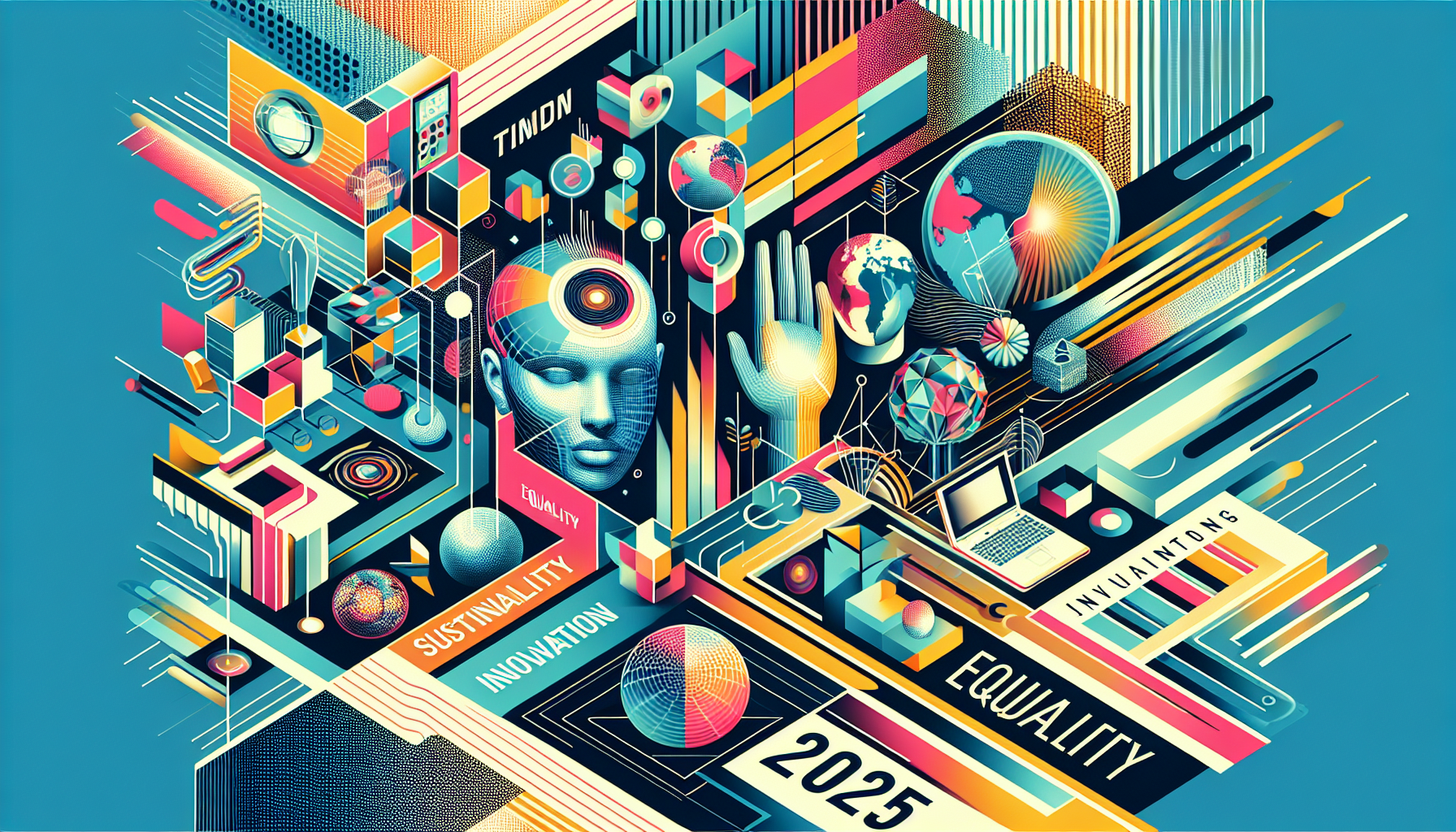Trend 1: Artificial Intelligence Everywhere
Integration Across Industries
By 2025, AI will become ubiquitous, seamlessly integrated into various sectors from healthcare to finance. Businesses will leverage AI for predictive analytics, customer service chatbots, and personalized marketing. In healthcare, for example, AI algorithms will analyze patient data to recommend tailored treatment plans, improving health outcomes and streamlining operations.
AI Ethics and Governance
As AI becomes a larger part of our lives, discussions around ethics and governance will intensify. Companies will need to establish robust frameworks to ensure transparency and fairness in AI processes. Expect to see greater regulatory scrutiny to combat bias in algorithms and data privacy issues.
Trend 2: Sustainable Living
Eco-Friendly Products
Consumers are increasingly prioritizing sustainability, leading brands to adopt eco-friendly practices. From biodegradable packaging to sustainable sourcing, businesses will need to adapt to this growing demand. This shift will be reflected in everything from fashion to food, as companies seek to minimize their environmental impact.
Smart Home Technology
Sustainable living will also be supported by smart home technology. Devices that monitor energy consumption and optimize usage will become more popular, allowing homeowners to reduce their carbon footprint while lowering utility bills.
Trend 3: Remote Work Revolution
Flexible Workspaces
By 2025, remote work will become the default for many industries. Companies will embrace hybrid work models, allowing employees to split their time between home and the office. This hybrid flexibility will lead to a rethinking of physical office spaces, with a focus on collaboration areas rather than traditional desks.
Digital Collaboration Tools
To support remote work, digital collaboration tools will evolve. Expect innovations in virtual reality meeting spaces and platforms that enhance team collaboration, making it easier for remote employees to feel connected and engaged.
Trend 4: The Rise of the Metaverse
Virtual Economy
The metaverse is anticipated to become a significant part of daily life, influencing how we socialize, work, and shop. Virtual worlds will host social interactions, leading to the development of a virtual economy where users can trade goods and services. This will redefine online experiences and create new business opportunities.
Education in the Metaverse
Educational institutions will likely adopt metaverse technologies for immersive learning experiences. Virtual classrooms can offer interactive simulations that enhance comprehension and engagement, appealing to a new generation of students who prefer digital interaction over traditional lectures.
Trend 5: Health and Wellness Technology
Wearable Devices
Health and wellness technology will reach new heights with the advancement of wearable devices. By 2025, these gadgets will monitor everything from heart rates to stress levels, providing personalized insights to users. This data will encourage healthier lifestyle choices and empower individuals to take charge of their well-being.
Telehealth Services
Telehealth will become the norm, enabling patients to consult healthcare providers from the comfort of their homes. This trend will still be supported by a growing acceptance of virtual care and advancements in remote monitoring technology.
Trend 6: Augmented Reality Shopping
Enhanced Consumer Experience
As augmented reality (AR) technology improves, it will revolutionize the shopping experience. By 2025, consumers will be able to try on clothes virtually or visualize how furniture fits into their homes before making a purchase. This immersive shopping experience will reduce returns and improve customer satisfaction.
AR Integration in Marketing
Brands will integrate AR into their marketing strategies for interactive advertisements that engage consumers in novel ways. Expect to see AR-enabled billboards and social media campaigns that draw users into your brand world.
Trend 7: Blockchain Beyond Crypto
Transparency in Supply Chains
While blockchain is commonly associated with cryptocurrencies, its application will extend into supply chain management by 2025. Companies will use blockchain technology for enhanced transparency and traceability, enabling consumers to verify the origins of products. This will foster trust and accountability in business practices.
Decentralized Finance (DeFi)
Decentralized finance will continue to disrupt traditional banking systems. By leveraging blockchain, individuals will access financial services without intermediaries, leading to greater financial inclusivity and innovation in investment strategies.
Trend 8: The Gig Economy Expansion
New Business Models
The gig economy will continue to flourish, spawning new business models that cater to freelance and contract workers. Companies will adopt more flexible hiring practices, allowing them to tap into a wider talent pool without the constraints of full-time employment.
Worker Protection and Rights
However, this rise in gig work will necessitate better protections for freelancers. Stakeholders will push for comprehensive labor laws that address the unique challenges faced by gig workers, ensuring fair wages and access to benefits.
Trend 9: Personalization and Customization
Consumer Expectations
In 2025, personalization will be a baseline expectation for consumers. Brands will rely on advanced data analytics to offer tailored experiences, from personalized marketing messages to individualized product recommendations. This shift will enhance customer loyalty and engagement.
Customization in Products
Industries like fashion and tech will embrace customization, allowing customers to design products according to their preferences. This trend will foster a sense of ownership and connection to the brand, driving sales and customer satisfaction.
Trend 10: Global Connectivity and 5G
Faster Internet Access
As 5G technology becomes widespread, global connectivity will soar. By 2025, we can expect faster and more reliable internet access, especially in rural and underserved areas. This leap in connectivity will unlock new opportunities for remote work, e-learning, and telehealth services globally.
Smart Cities
The advent of 5G will also accelerate the development of smart cities, where IoT devices gather data to improve urban living. From traffic management to energy efficiency, smart city initiatives will enhance the quality of life for residents while reducing environmental impacts.
